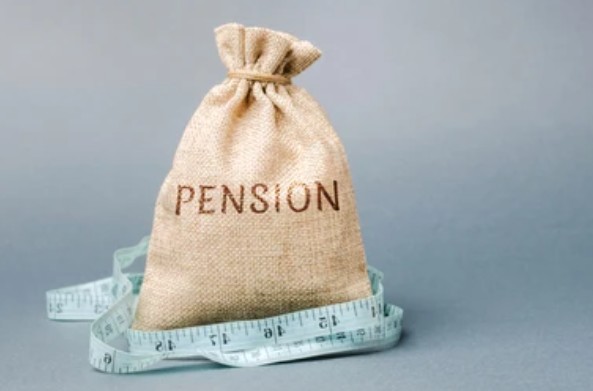Many people in the UK wonder what happens when it comes to State Pension entitlement if they’ve never had a formal job. Whether due to long-term caregiving responsibilities, illness, or other personal circumstances, not working throughout your life doesn’t necessarily mean you’ll receive nothing in retirement.
In this detailed guide, we explain what the rules are, how much you could be entitled to, and how to improve your pension situation if you’ve never been employed.
Does the UK State Pension Depend on Employment?
No — employment is not the only path to receiving a State Pension. In the UK, State Pension eligibility is based on your National Insurance (NI) record, not strictly on your job history. So, even if you’ve never been in paid employment, you might still qualify for some or even the full pension.
The New State Pension system, which applies to anyone reaching pension age on or after 6 April 2016, is based on the number of qualifying years you’ve built up through National Insurance contributions or credits.
A qualifying year is a tax year in which you’ve paid or been credited with enough National Insurance to count towards your pension.
What Is the Full New State Pension Amount in 2025?

As of the 2025/26 tax year, the full New State Pension is:
- £221.20 per week
- Which works out to £11,502.40 per year
To receive the full amount, you need to have 35 qualifying years on your National Insurance record.
If you have between 10 and 34 qualifying years, you’ll receive a pro-rata amount. That means your pension is calculated proportionally based on how many qualifying years you’ve earned.
Here’s an example:
- 20 qualifying years = about £6,572 per year in State Pension
- 15 qualifying years = about £4,929 per year
- 10 qualifying years = minimum threshold, worth about £3,286 per year
It’s important to remember that you need at least 10 qualifying years to receive anything at all.
How Can You Get Qualifying Years Without Working?
Even if you’ve never had a formal job, you may have still earned qualifying years through National Insurance credits. These credits are given in various situations where you are not working but are still contributing to society in other ways.
Common scenarios include:
1. Claiming Child Benefit
If you claimed Child Benefit for a child under the age of 12, you automatically received NI credits during that time. This is one of the most common ways non-working parents build up a pension.
2. Caring Responsibilities
If you cared for someone for 20 hours or more per week, you may have qualified for Carer’s Credit. Even if you didn’t claim Carer’s Allowance, you may still be eligible for backdated credits.
3. Receiving Certain Benefits
If you received Universal Credit, Jobseeker’s Allowance, Employment and Support Allowance, or similar means-tested benefits, you were likely awarded NI credits for the period in which you claimed them.
4. Illness or Disability
Periods where you were unable to work due to illness or disability may also count, especially if you were receiving support from the state.
In short, if you’ve spent time raising a family, dealing with health issues, or providing unpaid care, you could have earned significant qualifying years — even if you’ve never been employed.
What If You Have Fewer Than 10 Qualifying Years?
If you have fewer than 10 qualifying years on your record, you won’t receive any State Pension. But that doesn’t mean you’ll be left without support.
You may still be eligible for Pension Credit, a means-tested benefit designed to ensure a minimum income for older people.
As of June 2025, Pension Credit guarantees:

- £218.15 per week if you’re single
- £332.95 per week if you’re in a couple
Pension Credit can also open the door to additional help, such as:
- Free NHS dental treatment and prescriptions
- Help with heating bills (via Cold Weather Payments or the Winter Fuel Payment)
- Free TV licence for over-75s
- Council Tax reductions
So, even if you’re not entitled to a State Pension, you might still receive enough financial support to live securely in retirement.
Can You Improve Your State Pension If You’ve Never Worked?
Even if retirement is near, there may still be ways to increase your State Pension.
1. Backdate National Insurance Credits
You might be able to claim NI credits retrospectively — for example, if you were eligible but didn’t claim Child Benefit in your name.
2. Make Voluntary NI Contributions
You can buy missing years through Class 3 National Insurance contributions, which cost around £907.40 per year. This could boost your pension by about £328.64 per year for life — a worthwhile investment in many cases.
3. Speak to the Pension Service or HMRC
If your record is incomplete or unclear, contact HMRC or the Pension Service for advice tailored to your circumstances.
How Much State Pension Will I Get If I Have Never Worked?
If you’ve never worked but have 10 qualifying years (via benefits, caregiving, or credits), you can expect to receive:
- Around £63 per week (1/3 of the full pension)
- About £3,286.40 annually
If you’ve never worked and have 35 qualifying years, you’ll get the full pension:
- £221.20 per week
- Or £11,502.40 per year
The exact amount you’ll receive depends on how many qualifying years you have. It’s crucial to check your National Insurance record and State Pension forecast.
You can check it here: GOV.UK State Pension Forecast Tool
Have You Ever Lived or Worked Abroad?
If you’ve spent time living or working abroad, particularly in a country with a reciprocal agreement with the UK, those years may count toward your State Pension.
This includes countries in:
- The European Union
- The European Economic Area (EEA)
- Switzerland
- Certain Commonwealth nations
- Countries like Canada, New Zealand, and others with bilateral agreements
You can contact the International Pension Centre to check if your overseas contributions can be recognised in the UK system.
How to Check Your State Pension Forecast

If you’re unsure of how many qualifying years you have or whether you’re entitled to anything, the best place to start is the government’s official pension forecasting tool.
You can access it online here:
https://www.gov.uk/check-state-pension
Check your State Pension forecast
With this tool, you can:
- View how many qualifying years you’ve got
- See how much pension you’re currently set to receive
- Check whether you can top it up with voluntary contributions
It’s a quick, free service and one of the most useful ways to plan your retirement strategy.
What If You’re Close to State Pension Age But Don’t Qualify?
If you’re approaching State Pension age and realise you won’t qualify for any or enough State Pension, don’t panic — there are still ways to improve your situation:
- Claim all eligible benefits, including Housing Benefit, Pension Credit, and support for energy bills
- Check your eligibility for backdated NI credits, especially for years where you cared for someone or claimed Child Benefit
- Consider paying voluntary contributions to boost your record
- Get professional advice — contacting a pensions advisor or Citizens Advice can help you make informed decisions quickly
Final Thoughts: Even Without Work, You May Still Qualify
The UK pension system is designed to be inclusive and recognises that work isn’t the only contribution to society. Raising children, caring for family, or managing personal health challenges are all valid ways to earn qualifying years toward your pension.
If you’ve never worked, it doesn’t mean you’ll receive nothing — but it does mean you’ll need to be proactive in checking what you’re entitled to and exploring options to fill any gaps.
It’s never too late to start preparing. A little planning now can make a big difference to your future security.






